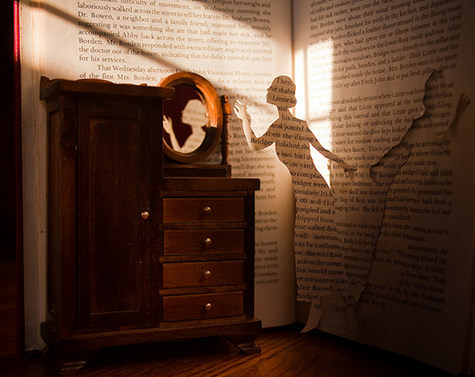A moving essay that acts as a loving ode to friendship which contemplates loss while reflecting on language and the environment…

by: Tommy Mulvoy
I have lived in German speaking cantons of Switzerland for eight years yet still confuse simple words like story (die Geschichte) and face (das Gesicht) and often ask for a knife (ein Messer) when I really want a plate (ein Teller). I have taken group classes and private lessons, listened to podcasts, made hundreds of notecards, and watched movies with subtitles, but nothing seems to work. The fact that my 6-year-old son, Aksel, speaks not only fluent High German, but also the completely confusing local Swiss German dialect, highlights my incompetence.
Specific failures over the last few years, including my inability to comprehend important information during Aksel’s parent-teacher conferences and follow simple directions during our weekly parent-child gymnastics class, have always motivated me to refocus on my studies. I am also fascinated by the amusingly long words and cute dots above various vowels. But the routine responsibilities of my life as a stay-at-home dad always interfere and lead me back to the ease of Google translate or nodding my way through conversations while throwing in a “natürlich” or “sicher,” two filler phrases that give off a sense of savvy.
What Google translate couldn’t do last month was put my feelings into words after the death of one of my closest friends. When people asked me how I was doing, I had one response, “Ich bin traurig,” which, in its basic form, means, “I am sad.” I wanted to be more specific but didn’t know any other words. I also struggled to express my feelings in a note to Karl’s wife. I didn’t just want to offer my condolences, or “Mein Beileid”; I wanted something deeper and more reflective of the anger, frustration, and denial that I was feeling. I felt so inadequate.
This feeling of inadequacy started when my wife and I moved to Basel, Switzerland in 2016. I took classes at a local language school and was taught High German, the standard German language spoken in the southern part of Germany and one of the four official languages in Switzerland. This was helpful when completing activities in a notebook but left me lost when trying to understand a waiter or train conductor speaking Baseldeutsch, the Swiss German dialect spoken in Basel. English, however, is the lingua franca of the expat community, and most locals switched to High German or English during conversations. This made getting around quite easy but didn’t force me to improve my German. What did was my family’s move to Andermatt, a small mountain town that sits on the north side of the Gotthard Pass in canton Uri.
If you overheard a conversation in the Urner dialect, identifying its original language would be difficult. The phonological system blends sounds and words together in a steady stream of undistinguishable guttural noises and the sing-songy rhythm lulls the unversed into a false sense of comfort. That villages that reside 5 km away from Andermatt use different words and phonetics which only adds to the difficulty in learning the dialect. Text messages in a parent chat group reveal multiple ways to spell words like “come” and “today.” The latter of which can be spelled and pronounced at least four different ways including “hittä,” hüt,” “heute,” and “hit” depending on what village you come from. If you come from a town more than six thousand kilometers away, you are left drowning in a sea of umlauts and words that have been shortened to two or three letters.
Upon arriving in Switzerland, my wife and I took a culture class where the teacher described the Swiss as coconuts in that they are tough to break open, but once you do, you will have a friend for life. In Andermatt, we were lucky to move into an apartment building with a diverse group of locals who have always been welcoming and provide a helping hand when needed. Still, it was hard to make close connections in a town where many of the 1,600 or so citizens are descendants of the 15 families who have lived there for generations. Karl, however, whom I met four years ago while skiing, clearly wasn’t a coconut and quickly became a friend.
I am sure I ran out of stock phrases on the ten-minute tram ride to the top of the mountain, but that didn’t seem to matter, as Karl and I followed each other around the rest of the day in search of fresh snow. Over the next few years, we skied together often and got to know each other’s favorite lines, skiing styles, and penchant for coffee. Karl helped me along when I tried to move past simple sentences, but our common language was the shrieks of joy and wide smiles that come with skiing bottomless powder or a difficult line.

In Spring, we pedaled our road bikes up and down mountain pass roads that climb out of the surrounding valleys, and when the snow melted in the alpine, we rode our mountain bikes across high plateaus and difficult to reach passes. Few words were spoken when pedaling up and over 2,000-meter-high pass roads or when carefully descending steep and exposed trails, but our feelings were made clear through salt-stained shirts, a shake of the head, or a fist bump. The language of the mountains is simple and made even more so when two good friends barely speak the other’s language.
As we spent more time together, it was clear that my language inadequacies were becoming a hindrance to learning more about each other. So, I signed up for an online course and hired a local tutor to help me with conversational Urner dialect. When I started greeting Karl with “Wie göts” instead of “Wie gehts” he smiled, and then left me lost as he continued the conversation in vernacular, which I was grateful for as there is nothing worse when trying to learn a language than having the person you are conversing with switch to an easier tongue. We used a mix of High German and local dialect when planning rides, with Karl always choosing the right one to make sure I ended up on the correct train or bus.
We also communed with the mountains. After a rainfall, they offered up tacky dirt that let us push our limits on our mountain bikes. In fall, they provided a glorious backdrop to the colored leaves and crisp air that foreshadowed the coming of winter. On warm, sunny days, they focused our sights on the impressive yet dying glaciers that surrounded us. I was particularly awed by the Rhone glacier, which we saw on one of our more adventurous rides last summer. When Karl informed me that he could see the glacier from the valley floor as a child, I initially thought I had misunderstood him. A quick check of the Swiss glacier monitoring site later that day confirmed both the sad news of the glaciers merciless melting in the face of a warming planet and my improving German.
The mountains were capricious on the day before Karl’s death. I woke up to sunny skies and 30 cm of fresh powder so light that it looked like I was floating through fairy dust in a video someone took of me skiing a line under the tram. In the afternoon, however, the wind picked up and the ski patrol closed the top of the mountain. The snow being thrown in the air by the ridge top winds looked magical but also presaged looming wind slabs on the lee side of the ridges. This fickle behavior continued the next day. I took the day off from skiing and enjoyed a long walk with my wife and our dog under a brilliant blue sky that was made even more so when juxtaposed with the fresh, white snow on the surrounding peaks. We talked about how lucky we were to live and raise Aksel in such a beautiful place. Four hours later, I received a frantic call from another friend’s wife telling me that Karl had been caught in an avalanche.
Slab avalanches, like the one that killed Karl, start with an ominous whumpf before reaching speeds of over 100 km/h in just a few seconds. I have heard this sound once in my life, while on a ski tour with a friend near Alta, Utah more than 15 years ago, but will never forget the fear that the sound stimulated. Luckily, the settling snow, which produces the noise, didn’t release, and we were able to ski down to safety.
After hanging up the phone with my friend’s wife, I jumped off the couch and ran to the Talstation, where the others who were skiing with Karl were meeting with the police and employees from the ski area. The door was locked, so I waited outside before walking aimlessly around the main street. An acquaintance walked by and asked if I was ok, but all that came out between sobs were some broken sentences with the few words I knew to describe what had happened. Half an hour later, I was ushered into a meeting room. I walked straight to Karl’s wife, Trix, and threw my arms around her as I cried uncontrollably. Words, whether in German or English, couldn’t describe how I felt at the moment.
I met up with Trix today for a few runs on the Gemsstock, the same place where I first met Karl. With my steadily improving Urner dialect I felt more confident expressing my feelings and more assured that I was understanding her. More seemed to be said, though, in the lapses in conversation, when I was searching for the right word or sentence structure. It was, again, the mountains speaking, standing tall in the beauty of the tangerine tinged afternoon light, reminding me that it was them that first brought me and Karl together.

Tommy Mulvoy is an American expat living in Andermatt, Switzerland with his wife, Vicky, and son, Aksel. After teaching high school for nearly 20 years, he is now a stay-at-home dad. His writing focuses on parenting, mental health and sports.
Find him on Instagram and at his webpage.





